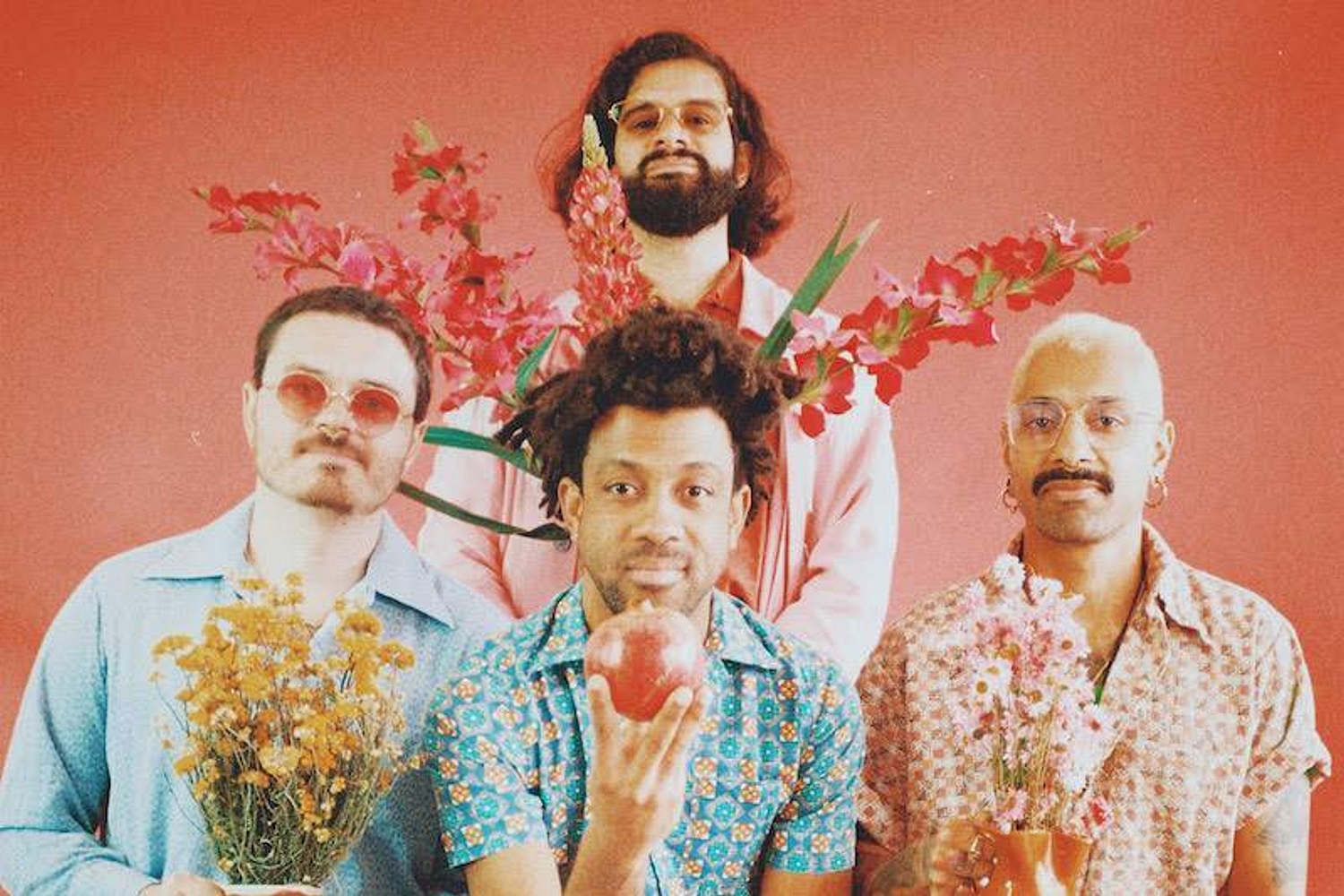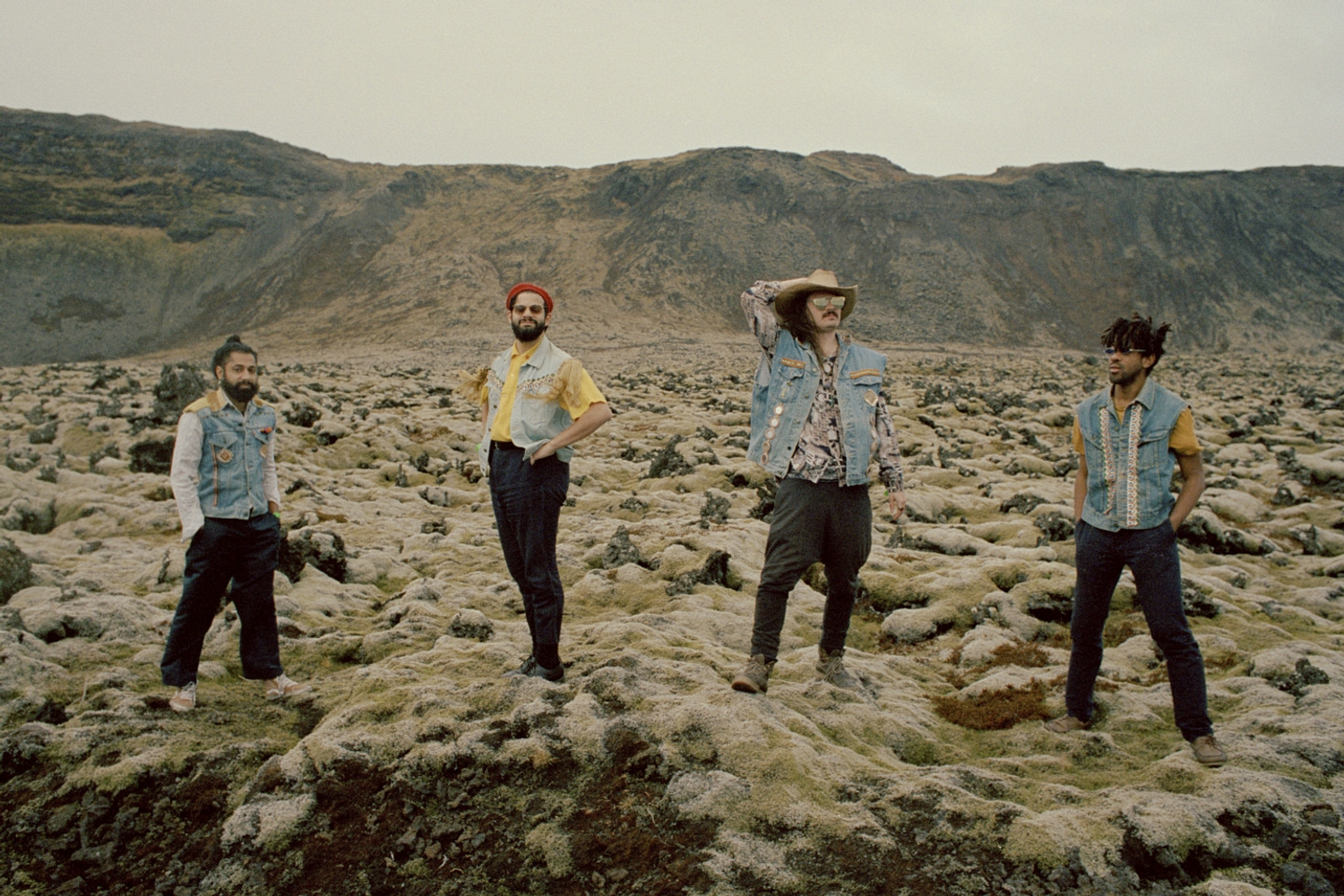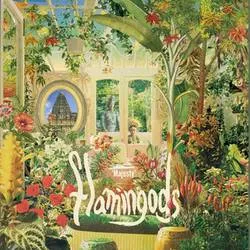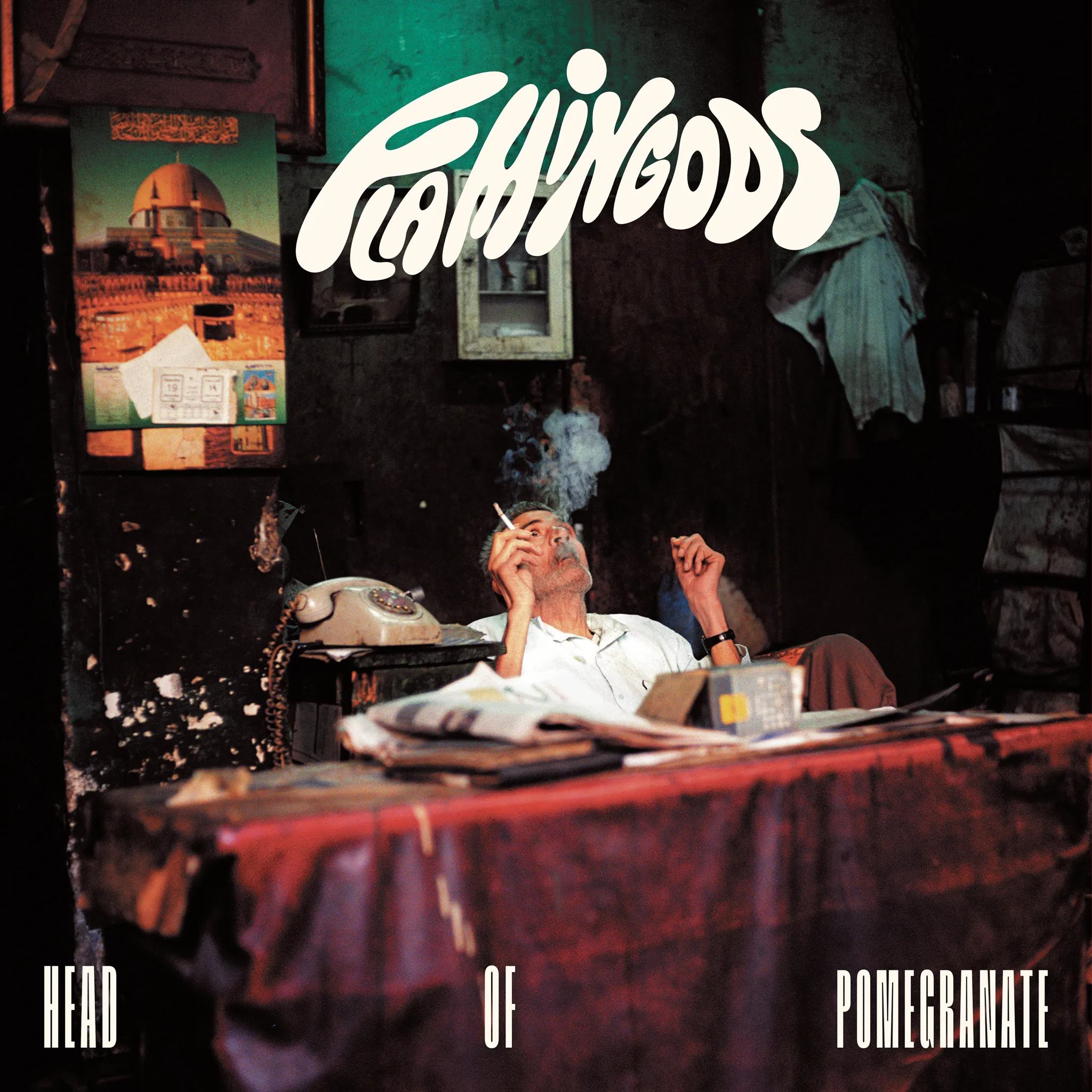News Flamingods: ‘No Two Shows Are Ever The Same’
Tom Walters talks to the London-via-Bahrain group about their origins, odd track names and self-professed jams”.”
Flamingods almost transcend a writer’s ability to accurately describe a band. This London-via-Bahrain five-piece basically began after bringing their culturally diverse instruments to an eight-hour jam session at ATP, and on their debut album ‘Sun’ – out now on Art Is Hard Records – they somehow manage to bring all of the energy a performance like that exudes and focus it into one of the most vibrant splashes of psychedelica you’ll hear all year. We caught up with them at the end of their first tour to talk about trying to tie down their experimental sound in the studio, whether or not they’ll ever write pessimistic music, the origins of their seemingly bizarre track names and more.
Kamal – in an interview with Loud & Quiet last year, you said “the whole idea of it, in the beginning, was that I was trying to transcend my cultural experiences into music.” Do you think the album successfully transcends your experiences as a whole?
Kamal: Oh yeah definitely! I mean a lot of these songs certainly do conjure up experiences we’ve all had in different cultures. Whether it’s by the particular instruments were playing in songs or the imagery we’re placing in our sounds. The record definitely channels a lot of these ideas and reminds me of the same energy and feelings I had while being at those exotic landscapes.
Are there any particular tracks that you based any one particular experience on?
K: Yes and no, mostly our songs are based around ideas, sensations and themes rather than certain specific events. I think a few of our songs really capture the raw, hypnotic energy of some of the places I’ve been to, such as Cacao, Xipe Totec and Papaya.
Sam – you also expressed in that interview that you guys like “the idea of repetitive, ongoing music, for ages, without any verse, lyrics or chorus”. How does your live performance compare to what you’ve recorded for the album?
Sam: Well for live performances we really try to make our songs quite long and ongoing, we extend our songs for party purposes but we also fill in the gaps with jams which themselves are very repetitive, they sort of work out as improvisations playing off an idea or drumbeat one of us has right there and then, with different ideas every week.
Basically, no two shows are ever the same. We also try to continue the good vibes in the gig; we do stop sometimes too to give people and ourselves a little break! I think we play on the idea of repetition with the recorded album, however every CD has a size limit and unfortunately we had to cut quite a few of the longer jamming songs. I think we’re going to release them on our record label Thunderfoot Records as an EP so watch that space fans!
What was it like trying to record with focus and direction in the studio when your songs so seemingly go off in so many different directions?
Karthik: The nature of our music and kind of sensibility we have towards making music means that focus and direction kind of go out the window. That’s not to say that we don’t get stuff done, when we really knuckle down we really get going, but when we set out to do something like going into the studio and recording a few tracks we end up coming back having recorded twice as many just because of how excitable we get over our jams! Being that none of us really live in the same city, whenever we are together we really make the most of our chance to jam together which means we never feel like we’re wasting our time by not focusing on one thing.
Do you think you need to meet a tribe in the Amazon in order to write a good tribal track? Other bands have attempted the sound before who haven’t necessarily had all of the same cultural experiences as you.
Craig: Not really. I’ve never met an Amazonian tribe. Only Kamal has and I think that was most important not necessarily for showing him how to make a good tribal track but rather for inspiring him to start doing what he did and also I think it made him realise that he can do the music he wants without formal training. The thing is, when you grow up in place like Bahrain that is sort of a cultural melting pot, you grow up with a kind of ever-present awareness of cultural pride and the things that make up certain cultures including the rituals, customs and underlying beliefs. Having that as a part of your life while growing up is what I think helps one develop a certain skill in removing yourself from your own mindset to see into alien cultures with better understanding. That understanding then dictates how you go about transcending a cultural experience into music. So while the experience Kamal had meeting that tribe was indeed a necessary thing to happen for Flamingods to be what it is today, Flamingods isn’t an attempt to make authentic music; it’s an attempt to do all that through our own interpretation that is influenced from our own histories, cultural heritage and music tastes.
Have you ever considered writing a depressing track or do you guys just ride on the buzz of positive vibes all the time? If the answer is yes then I’d love to know how you do it!
Charles: We’re all just really happy guys and love hanging out together so there’s always a nice atmosphere when we’re coming up with new music and we sort of feed off of that happy atmosphere. Some of the tracks can probably sound moody and dark, but we’ve never set out to write a sad song. I guess for the most part we’re all in a good place right now.
Do you ever worry that people won’t “get” your music?
Charles: We don’t worry too much about that kind of stuff. We know our music can maybe sound a little too intense or out there for some people so we’re not offended when someone says they don’t like it. It’s cool though when people we don’t expect to get into us come up to us after and say how much they enjoyed it though! We don’t intentionally go out of our way to offend people, and most of out criticism comes from people who take what we do in the complete wrong way. We’re just having a good time and thankful for the people who are into it as much as we are.
How do you go about naming your tracks? Words like ‘Taishögoto’ and ‘Quesso’ could come across as Jonsi-esque gibberish to the uneducated.
Kamal: A lot of the song names come from a lot of different places and times. I’m heavily into Meso-American culture, it’s a culture that intrigues and influences us quite a lot, and so as a result of this a lot of our tracks are named as odes to their gods; Kinich Ahau and Xipe Totec. Some other track names are a lot more random. Most people think that ‘Quesso’ is about a type of cheese, but it’s actually a word that Charles and me made up which has a kind of ‘brotherly connection’ meaning. I always thought that it’s really important for a song name to match the imagery explored in a song.
What are you most excited about on your upcoming tour?
Sam: We’re pretty excited about it all. We really didn’t expect all this support and hype and great feelings about the tour but it’s really looking amazing! We’re looking forward to life on the road and playing our best to anybody that wants to listen. Also to our album release on the 21st Jan halfway through the tour by Art is Hard Records, who are the most amazing guys and should be joining us at a gig or 2.
Apart from Eastern culture, what else inspires the Flamingods sound?
K: I would say absolutely everything. We all have really diverse tastes in music and culture, which has definitely been aided by us all living abroad and being fortunate enough to travel so much. I think we all inspire each other in a way as well, which is why our jams and songs have the energy they do.
C: We are always talking about our cultural influences but the Western world has also managed to be ever-present in our lives even though we grew up in the east. Westernisation coupled with the fact that we lived in a place with a large English speaking community meant that we’ve always been exposed to western culture, music, art, food, television etc. So western culture also inspires our sounds. Some specific bands from the west that I would name drop are Animal Collective, Tool, Mars Volta, Battles and maybe even BADBADNOTGOOD. We haven’t placed any restrictions for where the inspiration comes from.
S: Yeah pretty much everything inspires us as long as it’s actually real and good music.
The ‘Sun’ album is out now via. Art Is Hard.
Read More

Flamingods announce new album and share latest single, ‘Gutterball’
The band’s recent releases are their first new music since 2019.
5th July 2023, 12:38pm

Flamingods - Levitation
3 Stars
A fun record that’s clearly born of love and dedication.
3rd May 2019, 7:58am

Flamingods share new track ‘Paradise Drive’
The track is the second to be taken from their forthcoming new album 'Levitation'.
14th March 2019, 12:00am
Flamingods get explosive on new reworking ‘Hyperborea (Part 1 & 2)’
It’ll be Speedy Wunderground’s first-ever 10” vinyl release.
8th November 2017, 12:00am
Featuring SOFT PLAY, Corinne Bailey Rae, 86TVs, English Teacher and more!


